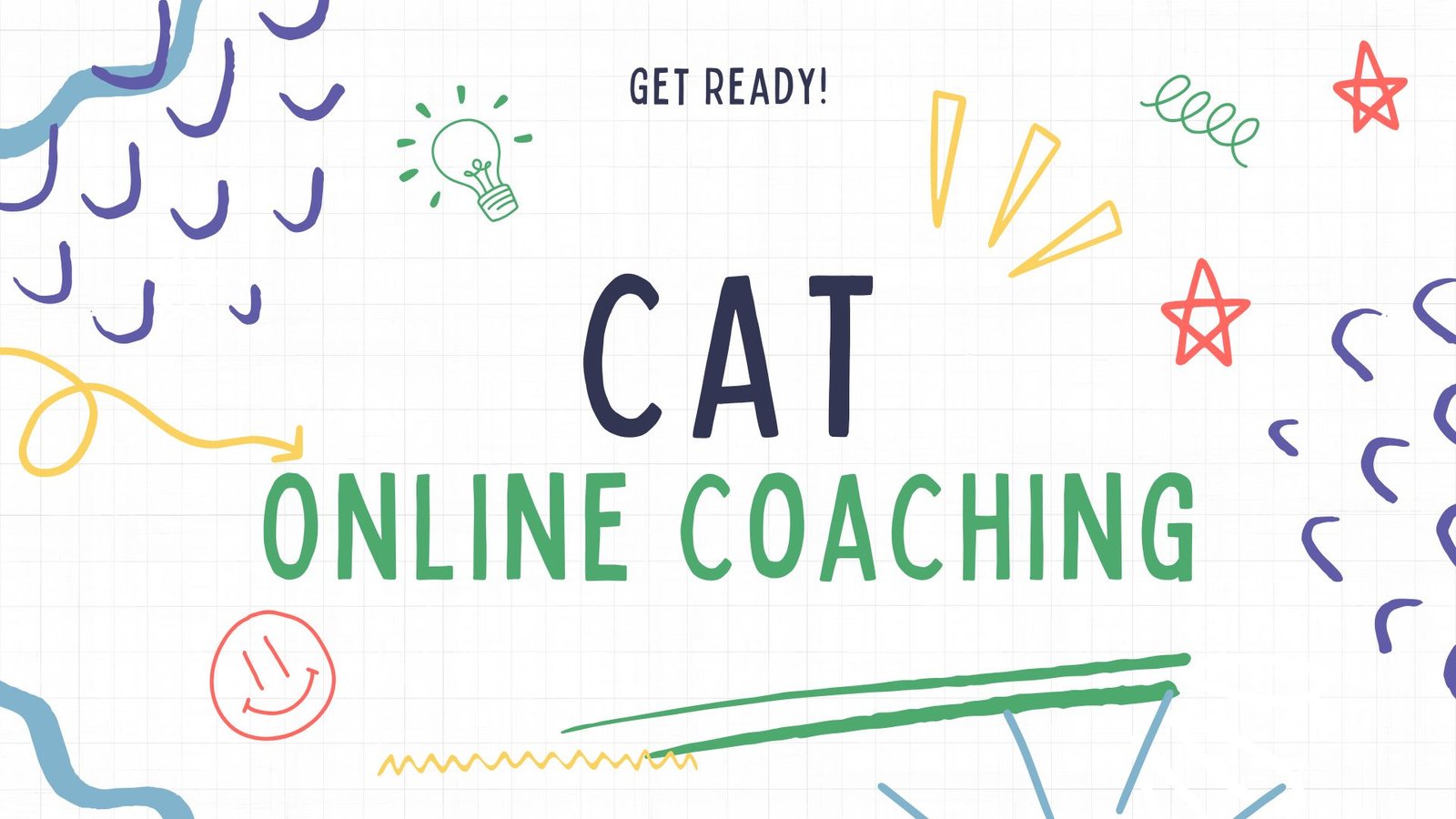CAT Online Coaching: Advantages and Disadvantages!
The journey towards the Common Admission Test, or CAT, preparation is extremely grueling. The candidate requires proper strategy, good practice, and proper guidance while going through this process. The aspirants traditionally resorted to classroom-based coaching to ace the exam. However, with the advancement of digital education, CAT online coaching is becoming one of the more sought-after CAT coaching options for most aspirants.
Many benefits are there with online coaching, but still, there are some limitations also attached to it. The following article discusses the pros and cons of CAT online coaching, so you can make an appropriate judgment about whether it suits the preparation strategy or not.
Advantages of CAT Online Coaching
Flexibility and Convenience
The most important benefit that CAT online coaching offers is flexibility. With the easy convenience of downloadable study materials, video lectures, and practice tests, any aspirant can download them at any convenient time suitable to him. This is especially useful for working professionals and other students who cannot attend regular classes due to time constraints.
- Learn Anytime, Anywhere: You can learn online from the comfort of your home. Hence, you will save time as well as effort that you would otherwise use to go to a coaching center.
- Self-paced learning: The option offered by online coaching gives you the flexibility to learn at your own pace. In case you cannot understand a particular topic, you can go back and watch the video lectures or practice it more, without any pressure.
This flexibility enables you to calibrate your study schedule to coincide with your choice of preferences and availability of time, thus suitable for those who have a busy schedule.
- Access to a wealth of resources
CAT online coaching platforms provide learning materials of the highest order, which include-
- Video lectures
- E-books
- Practice quizzes
- Mock tests
- Live classes and doubt-solving sessions
In addition to these, many platforms also provide recorded classes, which make it possible to review the lesson a number of times. Such extensive learning resources ensure that the students can locate appropriate applications or practice materials that explain the topic in more precise terms than what is explained during the lesson.
- Tailor-made learning experience
Many online coaching portals have adaptive learning methodologies, through which course material is learned according to individual performances. These portals classify your performance and make recommendations for improving your weaknesses. Some of the online programs even offer:
- Customized study plans as per your preparation time frame
- Sectional tests focus on specific areas like Quantitative Ability, Verbal Ability, Data Interpretation, and Logical Reasoning.
- This personalization helps aspirants target the right areas in which they need the most improvement, thus strengthening their overall performance ultimately.
- Cost-Effectiveness
Online coaching is relatively more affordable in nature, compared with the traditional classroom-based coaching model. In many cases, with competitive pricing, online portals provide free resources that include mock tests, question banks, and study materials. For aspirants who are on a tight budget, high-quality preparation materials are within their reach, but they would not run up a tremendous price tag.
No transport or relocation cost
Various price ranges and packages are available
That makes it cheaper for students to prepare without breaking into a bank account.
- Interactive Features
Coaching sites that offer online sessions have many interactive features that try to replicate the traditional classroom. These include;
Live lectures with real-time interaction between students and lecturers
Doubt-solving sessions where a student can ask for clarification.
Forums where students can discuss with their peers.
CAT Online Coaching Disadvantages
- Lack of Personal Interaction
The most prominent drawback of CAT online coaching is that there is no direct interaction with the teachers and peer groups.
In the online coaching scenario, though there are live sessions, there is a lack of communication:
- The student may not be able to ask questions freely in a live session.
- There might be a delay in resolving doubts because you rely on chat-based systems or have to wait for scheduled sessions to resolve your doubts.
- The personal touch of the guidance being provided by a teacher might be missing. This is an irrelevant factor for some students because staying motivated often depends on the person.
- This face-to-face interaction might work as a drawback for those who opt for highly interactive, class-like environments.
- Self-Discipline and Time Management
Online coaching may be beneficial due to flexibility, though this is another factor that works like a double-edged sword. Online coaching requires a lot of self-discipline to control time. Without any schedule in class attendance, some students will easily drift away from their study routine.
Procrastination can become a big issue if you do not have a structured schedule.
There is a lack of accountability in terms of no regular classes and deadlines.
- Technical Issues
Online training depends on technology, and sometimes technology is what tends to hamper the understanding and the learning itself. Examples of common technical issues likely to hinder a lesson include:
- Buffering from poor or unstable internet in lessons or video lectures.
- Glitches occur in the learning platform, causing people to gain access to materials or tests significantly later than they should.
- Some of the devices available limit what the learners can do because one has to buy a good computer or tablet to effectively learn.
- These can significantly impede your study flow and quality of learning, especially when you are living in a region that has deplorable internet connectivity.
- Low Peer Interaction
When coming to a traditional classroom-based coaching system, the students can interact and engage with peers, discuss concepts, and engage in group studies. This kind of peer interaction can be motivating and helpful in grasping complex subjects.
With online coaching, peer-to-peer interaction is generally very limited:
- While some platforms include discussion forums, there tend to be fewer live, animating conversations.
- Group study or collaborative learning is more challenging in the online format.
- Aspirants who enjoy learning in a collaborative environment may be left behind due to an inability to share these kinds of interactions.
- Over-Reliance on Self-Study
Usually, online coaching is a fully independent endeavor, such as learning on your own, which also means understanding concepts and solving practice problems on your own. Of course, there are many resources in front of you, but still, most of the learning would be self-learning.
Some students feel humbled by the vast amount of material that needs to be curated for their own study plans.
Conclusion
Online CAT coaching comes with flexible, affordable, and richly resourceful alternatives to traditional coaching. Ideal for self-disciplined candidates with good time-management skills who prefer their own pacing and control, but of course, a drawback of lack of face-to-face interaction and reliance on technology and inbuilt self-motivation.
The pros and cons of the CAT online coaching article offer an all-rounded view of both the positive factors and the negative aspects that encourage interested students to make well-informed decisions in making up their minds to join the courses.






